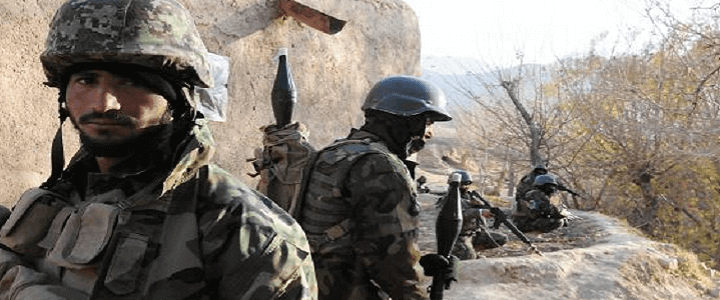On the night of June 30, 2009, Army Pvt. 1st Class Bowe Bergdahl walked away from his combat outpost near the village of Yaya Khel in Afghanistan’s Paktika Province. Forget why he did it. He’s a deserter and, unlike people who leak classified information, an actual traitor.
At his sentencing, he had the gall to claim the Taliban treated him better in captivity than the Army treated him. Spoiler alert: the Army promoted him twice while he was in captivity, gave him his back pay, and bent over backwards to give him a fair trial. He pleaded guilty to desertion, a crime punishable by death if committed during wartime. He is instead now a free man (if a dishonorably discharged convicted felon) because a judge serving in the organization that treated him worse than the Taliban .
By his own admission, the Taliban locked him in a steel cage in a blacked-out room for weeks on end and tortured him. But the Army treated him worse.
It’s that warped perspective on the world, the inability to understand the lengths the country went to to find him and secure his release, that make the cost of his release so outrageous in the truest sense of the word. President Barack Obama freed five hardcore Taliban fighters—Mohammad Fazl, Khairullah Khairkhwa, Abdul Haq Wasiq, Norullah Noori, and Mohammad Nabi Omari—from Guantanamo in exchange for Bergdahl’s return. The five were all close to the infamous Mullah Mohammed Omar, the Taliban’s elusive, and now thankfully dead, leader.
Leave no man behind, even if the man is a deserter.
Freed terrorists to aid taliban negotiations
So what are we to make of the news that those five freed terrorists have rejoined the Taliban? I will admit that when I first saw the news that the men had “rejoined the Taliban,” I was furious. The men were supposed to remain in Qatar, and the Qatari government was supposed to monitor their activities closely, sort of a supercharged parole. The initial headlines implied the men had slipped their surveillance and returned to the battlefield in Afghanistan.
This is why we read the article before angrily retweeting a headline. The five men have rejoined the Taliban, but not in Kandahar. They will be part of the Taliban’s official office in Qatar, and thus part of a critical communications channel that could potentially end the war. Observers see this as a positive sign that the Taliban may just be serious about a negotiated settlement to a war that is now entering its 18th year.
The U.S. government has publicly endorsed the idea of such a negotiation. In late July, we learned that American officials had met Taliban officials in Qatar to start a peace process. In August, Secretary of State Mike Pompeo said the Trump administration “supports President Ghani’s offer for comprehensive negotiations on a mutually agreed agenda,” and that the U.S. government was “ready to support, facilitate, and participate” in such talks.
The Taliban still refuses to negotiate with the Afghan government directly, viewing it as a “puppet” of the U.S. I have a feeling that will change. While the government might not make war-related moves without American approval, there have now been two presidential and three parliamentary elections since 2004. The most recent vote was October 20 (October 27 in Kandahar due to the “green-on-blue attack” at the provincial security center on October 18 that killed the provincial police chief, Gen. Abdul Raziq).
Sooner or later, the Taliban will have to admit that the majority of the Afghan people support free elections, and that their best route to regaining at least some of the power in Afghanistan runs through the ballot box.
If the five hardened Taliban from Guantanamo prove to be the driving force behind a new round of trilateral peace talks that lead to actual peace, maybe the Bergdahl swap will have been worth it.
Until then, the jury’s still out.




